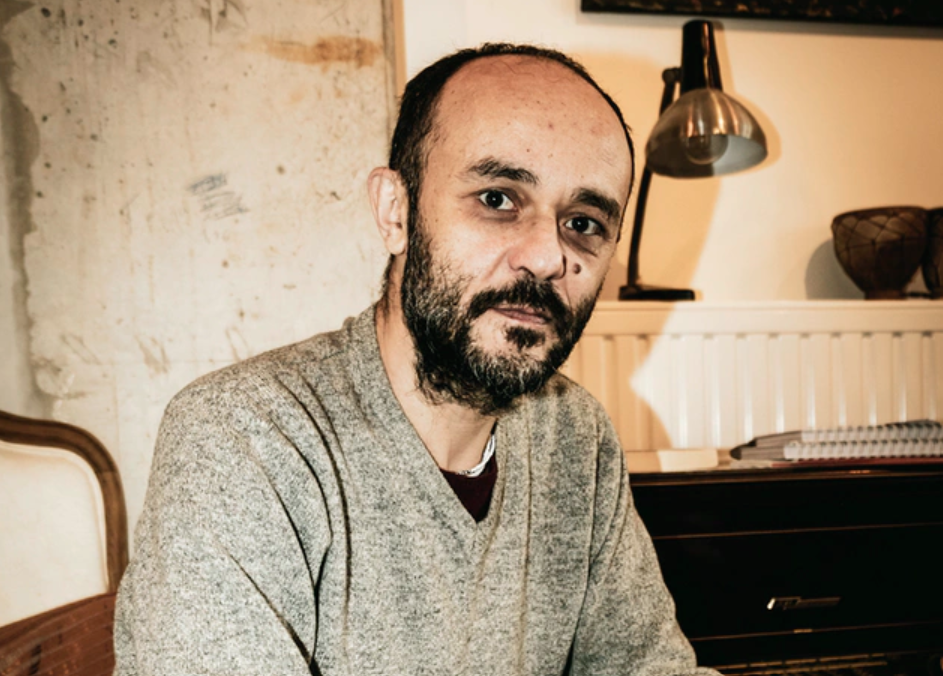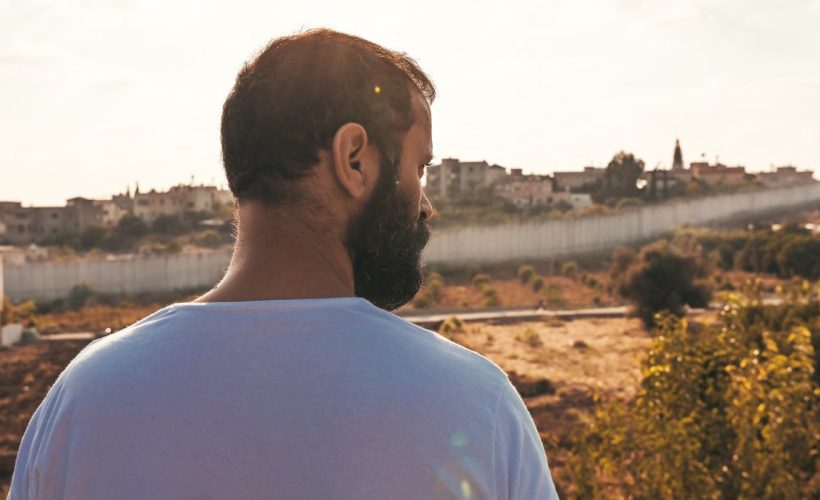Society
6.15.2021
Barrack Rima: “Dans le taxi is a throwback to my childhood, my roots and my wounds.”

After the famous Beyrouth la Trilogie, Lebanese comic book artist Barrack Rima comes back this time with Dans le taxi, a graphic novel in homage to his childhood and his hometown Tripoli.
Born in 1972 in Tripoli, Barrack Rima studied comics and illustration at the Royal Academy of Fine Arts in Brussels as well as cinema. He is a cartoonist, filmmaker, and has also worked as a press cartoonist for Lebanese and Belgian media. Member of the editorial board of the Lebanese comic book magazine Samandal, he became famous with Beyrouth la Trilogie, three graphic novels produced between 1995 and 2017 which depicts his conflicting relationship with his native country. In January 2021 in every bookstores, he will release Dans le taxi with the publishing house Aliftbata, a more intimate work than the previous ones where he shares his childhood traumas, his questions about sexuality in an enigmatic and chimerical story revealing his psychoanalytical universe.
See also
undefinedWhat triggered your interest in comics?
It’s hard to say. Drawing was a desire and a necessity since I was a child. I always knew that I liked to draw and tell stories, which led me to make comic books and films, which are both arts that mix images and stories.
Which authors inspired you?
In my journey, I learned from many authors, among them Alberto Breccia: an Argentine comic book author and cartoonist who taught me the multiple layers of black, white and gray. Louis Josse is a Belgian comic book author who was also my professor at the University and taught me to go straight to the point. And Edmond Baudoin, a French author who taught me generosity, tenderness, beauty of line, a form of wisdom.
You made yourself known with Beyrouth la Trilogie. What did you want to tell about the city when you released the first opus?
Beyrouth la Trilogie includes Beirut, Beirut Bye Bye and Beirut Rewind. I wrote each of them at three different periods of my life. The first one was my graduation project at the Academy of Fine Arts in Brussels. It was in 1995, I was a student in Belgium and had already left Lebanon a few years ago. The civil war had just ended and many Lebanese were returning to the country to participate in the reconstruction. The book was about the wind of hope of that time when everything was possible. The second opus takes place twenty years later and is much more pessimistic, I said I didn’t want anything more to do with this city. Then two years later, I went back in time and said that I couldn’t leave this city like that.

In January, you will release Dans le taxi, a work that takes place in Tripoli and much more intimate than the previous one. Why did you want to talk about Tripoli?
With Dans le taxi, I am exploring another territory that is the city of my birth. From the first page, I explain that I decided to return to Tripoli, my hometown. It is also a return to my childhood, my roots and my wounds: it raises the question of sexuality, desire, the notion of masculine and feminine. And this story happens in a collective cab, what we call “services” in Lebanon.
What does the cab represent for you?
For me, the cab represents the movement, it’s the symbol of the path and its driver can be a double of oneself, it is a guide.
Your black and white artistic style is both dark and dreamlike. What is your relationship with the night?
The night is the space of the dreams and the dreams hold an important place in my work because it is both a source of inspiration and an experience in itself that is part of the path. The dream is the place where I look for symbols, and drawing them is linked to a work of interpretation that I have been doing for several years.

Tripoli is also the city where the Lebanese thawra (revolution) started. Are you optimistic about the future of Lebanon?
I think that the revolution cannot and will not stop. But I think that in the short term, it will not be easy and it is already not easy for Lebanon.
The book is available in pre-sales on the website of the Marseille publishing house Alifbata. A pre-Christmas opportunity to support the press and independent publishing.
popular

